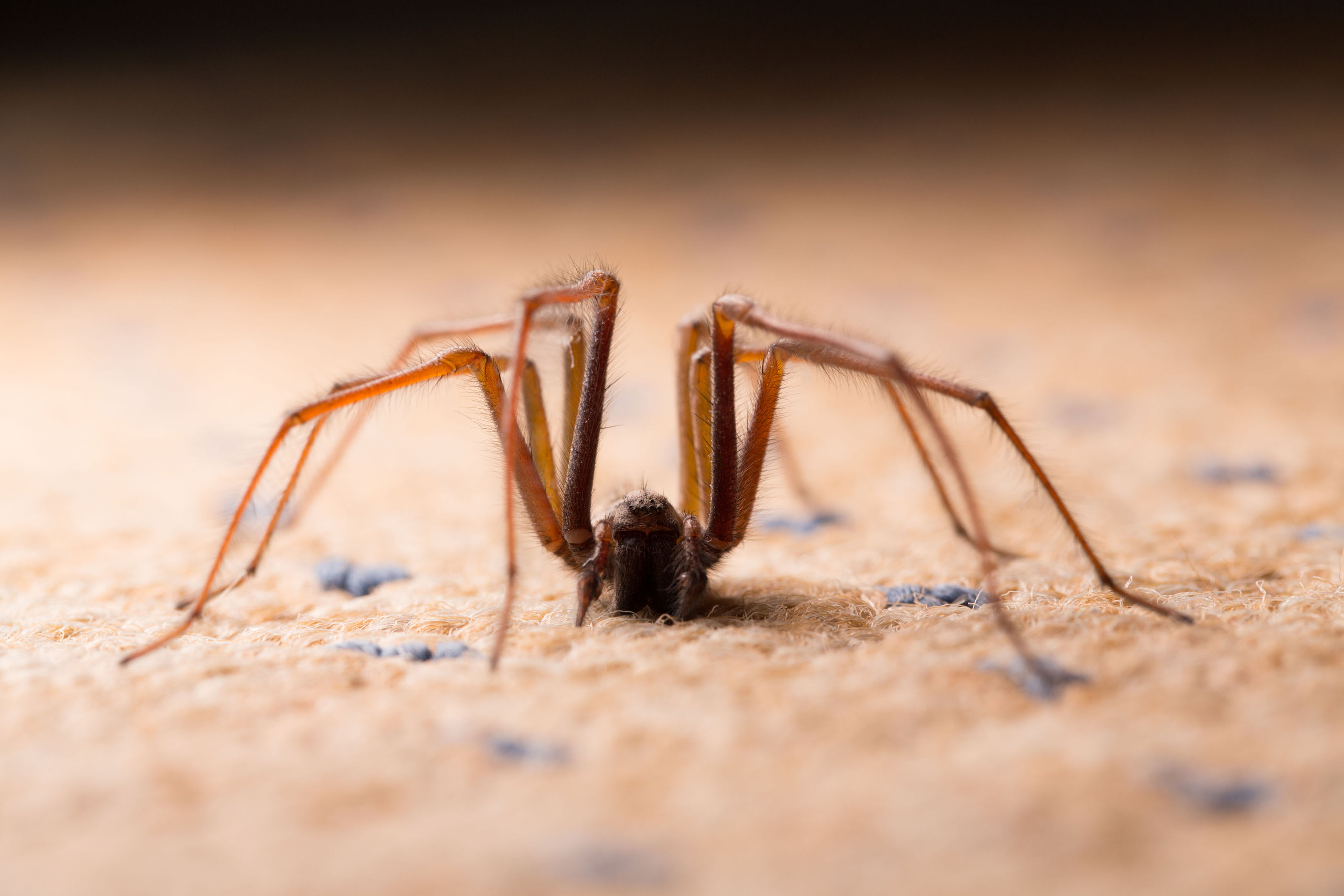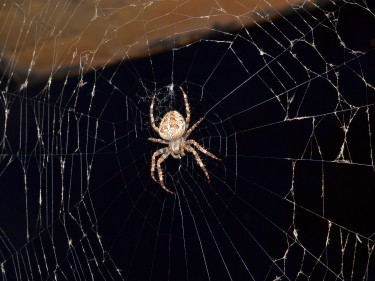It’s that time of year when our homes house unwelcome visitors – of the eight legged variety. Lisa Salmon reveals how to spider-proof your pad
As temperatures drop over the next month or two, keeping doors and windows shut won’t just keep the heat in – it’ll help keep spiders out.
The reasonably mild, wet weather in the UK recently has led to more spiders being spotted, and a garden building hailed as ’the world’s first spider-proof shed’ has even been launched, boasting a host of anti-spider features, including silicone-sealed joints, airtight windows and doors, and an interior lined with spider-repellent paper – as well as a ’No Spiders’ allowed sign, just in case spiders can read.
But if you don’t have spider-proofing, the eight-legged tiny terrors will make their way indoors – and often, they’ll head straight for your house. Experts say house spiders, which can grow up to 12cm long, are particularly large and plentiful this year, and their indoor invasion could be joined by Britain’s increasing numbers of false widow spiders, which earned their name because of their resemblance to the much more dangerous black widow spider.
While house spiders can bite but have no venom, false widows have been dubbed ’Britain’s most venomous spiders’, as they do indeed carry venom. However, like the rest of our native spiders, they aren’t aggressive. While they can, rarely, leave a bite which can cause pain, redness and swelling, they’re unlikely to if handled with care – or, preferably, not handled at all.
But whether they bite or not, most people don’t want spiders sharing their home.
If you do see one in the house, just put a container over it, scoop it up with a postcard and gently put it outside. However, there are plenty of things you can do to prevent the pesky critters invading your living space in the first place.
David Cross, head of the Technical Training Academy at Rentokil Pest Control, said: “Male house spiders leave their webs and enter homes in the late summer and autumn months to look for breeding partners. Recent spells of wet weather will have encouraged this behaviour, making it seem like there are more spiders than usual. As spiders are able to squeeze themselves through tiny gaps and holes, it’s impossible to completely proof your house against them, but of course, closing doors and windows will help keep them at bay.”
TOP TIPS FOR KEEPING SPIDERS AWAY
Limit spider food – Clear away any dead flies, or other small crawling insects.
Vacuum regularly – Always vacuum high and low, and make sure you target sheltered spots beneath worktops and behind cupboards and sofas.
Remove webs – Do this regularly, and remember to check the corners of the ceiling and in corners of picture frames and mirrors.
Fill gaps – Make sure you fill the gaps between walls, pipework and under doors where possible.
Remove sheltering sites – Spiders will look to tuck themselves away in firewood piles, garden bags and compost heaps, so get rid of them if you can.
Limit lighting – Insects are drawn to light, and flies and moths are ideal spider prey, so turn any outside lights off if you can.
Put them off the scent – Spiders don’t like the smell of citrus fruits like lemon, plus eucalyptus, tea-tree and peppermint oils. Try rubbing lemon peel around windows and doors, or spray the other scents around them. Another smell they don’t like is vinegar – although you might not like that scent either.
Feline foe – A cat will try to catch a spider if it sees it – although owning a moggy won’t stop spiders coming indoors in the first place.
Conkers – An old wives tale says spiders don’t like conkers and placing them around the house will keep spiders at bay. While there’s no real evidence to back this up, it won’t hurt to try.


